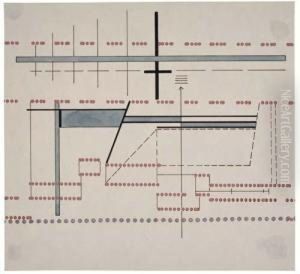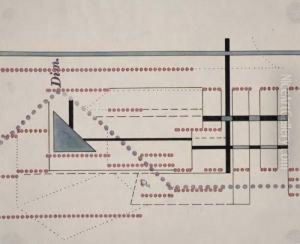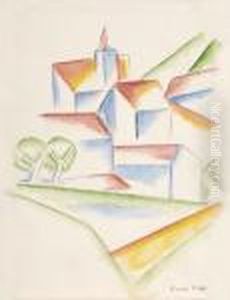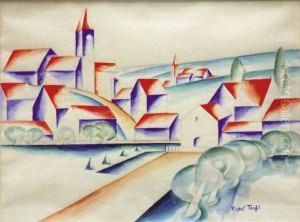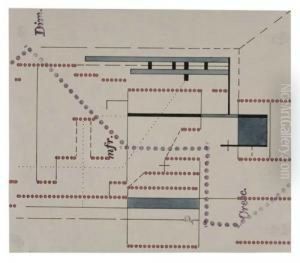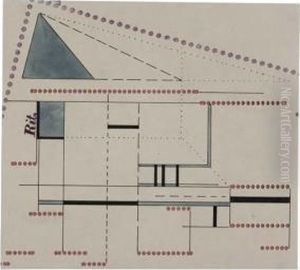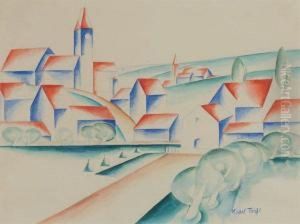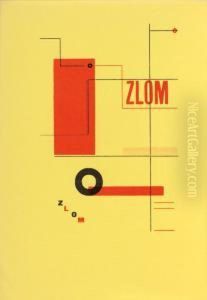Karel Teige Paintings
Karel Teige was a prominent Czech avant-garde artist, critic, theoretician, and one of the key figures of the European avant-garde of the early 20th century. Born on December 13, 1900, in Prague, then part of the Austro-Hungarian Empire, Teige's work spanned a range of disciplines including typography, collage, photomontage, and architectural theory, reflecting the interdisciplinarity that characterized the avant-garde movements of his time. He is perhaps best known for his role as a leading member of the Devětsil group, an association of Czech artists and writers that embraced the radical aesthetics of Constructivism, Dada, and Surrealism.
Teige's intellectual curiosity and prolific output made him a central figure in the cultural life of Czechoslovakia between the wars. He was deeply involved in the development of the Poetist movement, which sought to integrate poetry with visual arts, and was instrumental in introducing the principles of Constructivism to Czech artists and architects. His work in the 1920s and 1930s included significant contributions to architectural theory, particularly through his critiques of functionalism and his advocacy for the minimum dwelling as a solution to housing shortages.
Throughout his career, Teige was an ardent supporter of leftist politics and sought to align his artistic and theoretical endeavors with the goals of social progress and emancipation. His writings on art and architecture were not only critical analyses but also manifestos for the role of art in society. Despite facing political persecution and censorship, particularly from the Communist regime that came to power in Czechoslovakia after World War II, Teige remained committed to his vision of a socially engaged avant-garde.
Teige's influence extended beyond his lifetime through his extensive writings, which continued to inspire architects, artists, and theorists. His commitment to an avant-garde that was simultaneously radical and deeply humanistic left a lasting legacy in the fields of modern art and architectural theory. Karel Teige passed away on October 1, 1951, in Prague, but his work remains a crucial reference point for understanding the avant-garde movements of the 20th century and their aspirations for a better world through the synthesis of art, politics, and social life.
